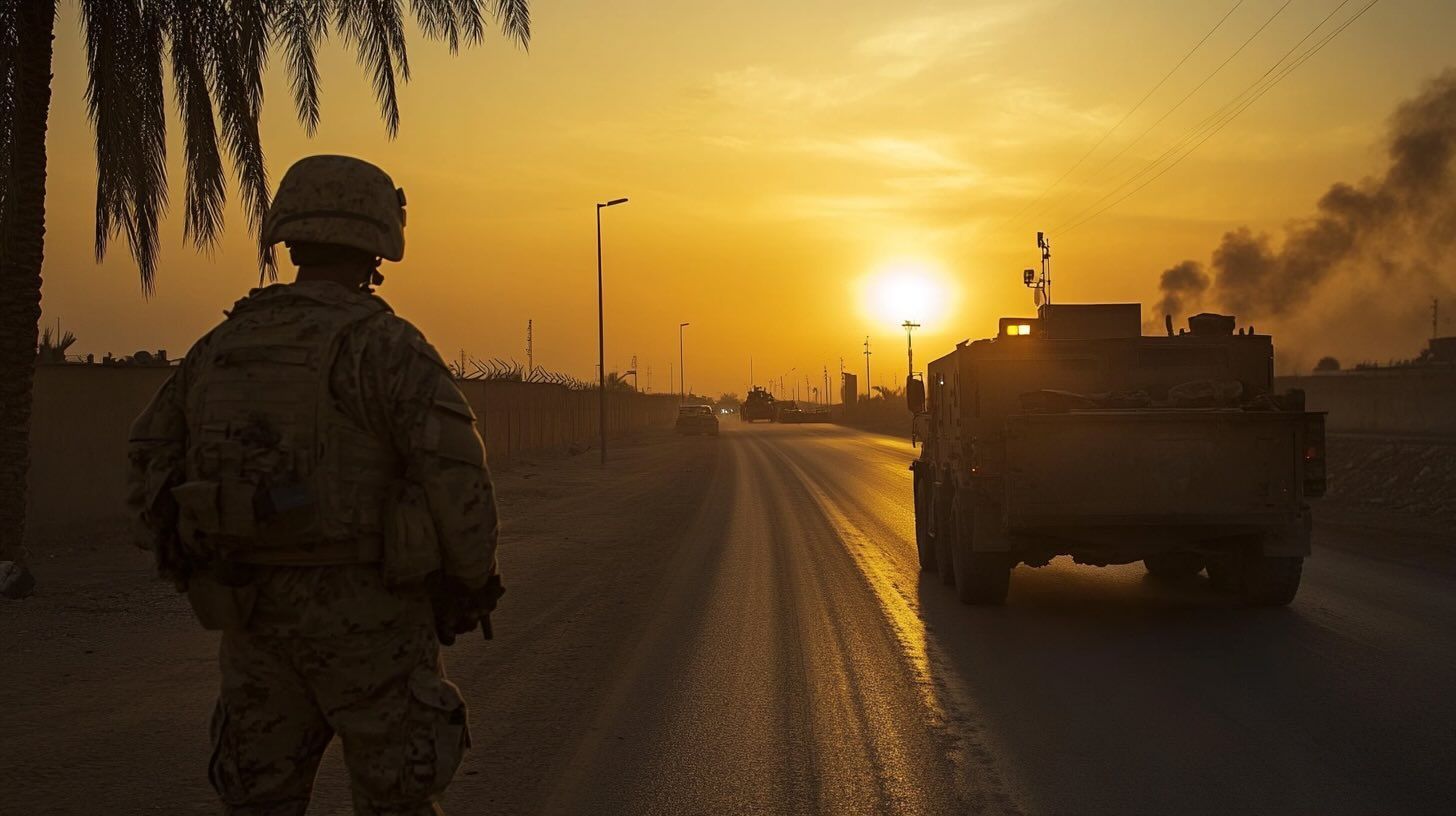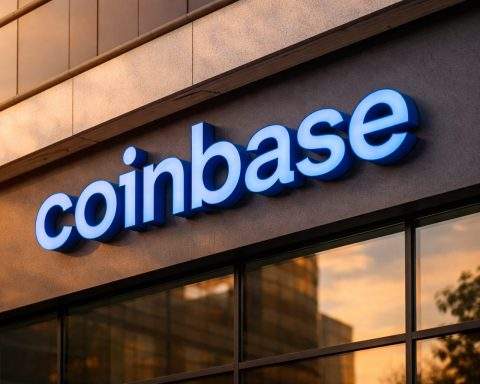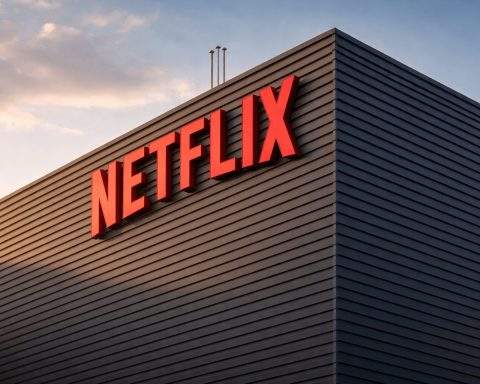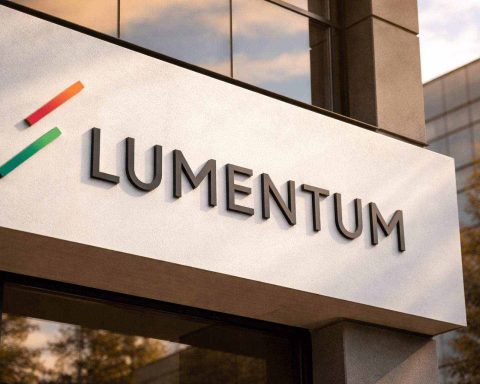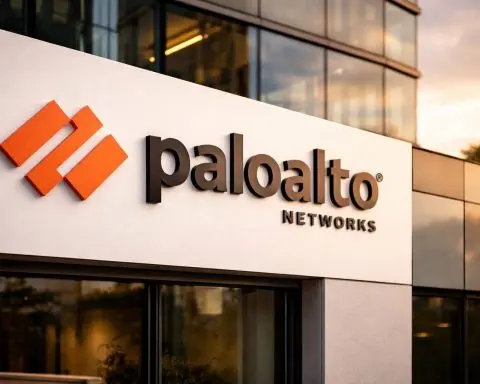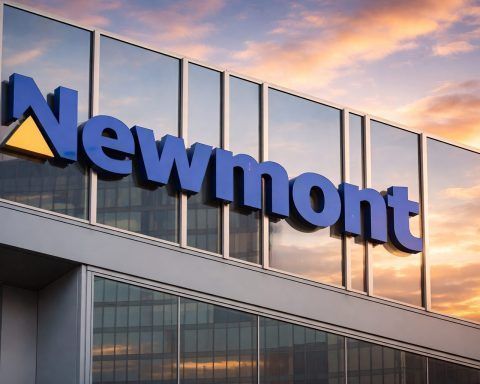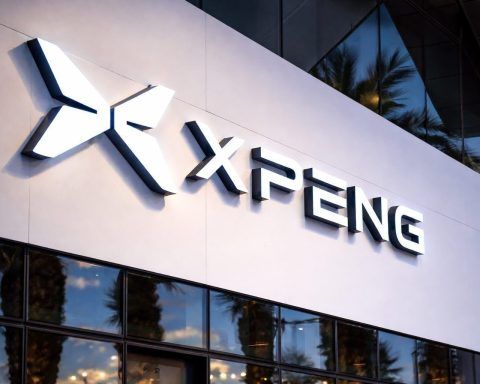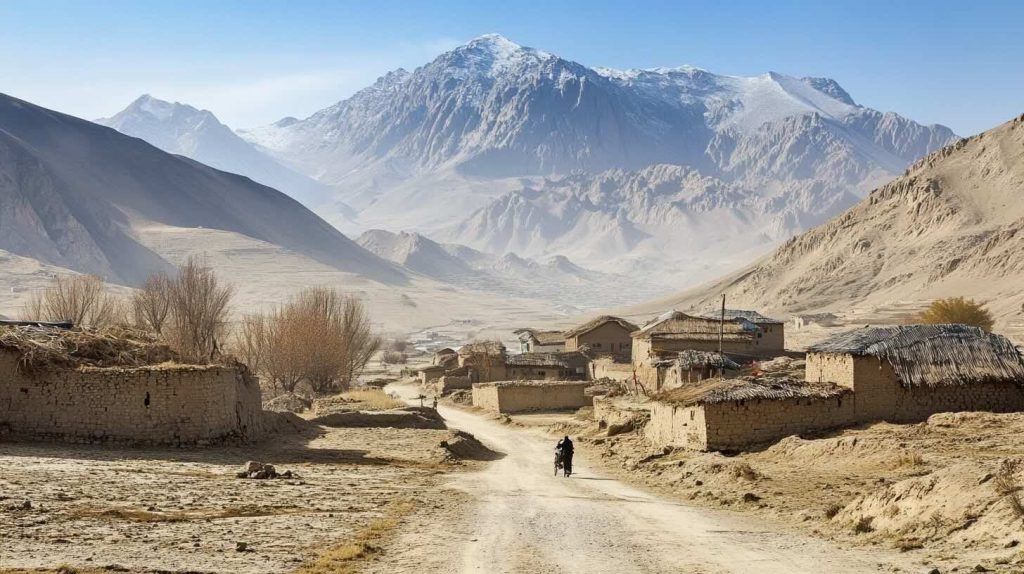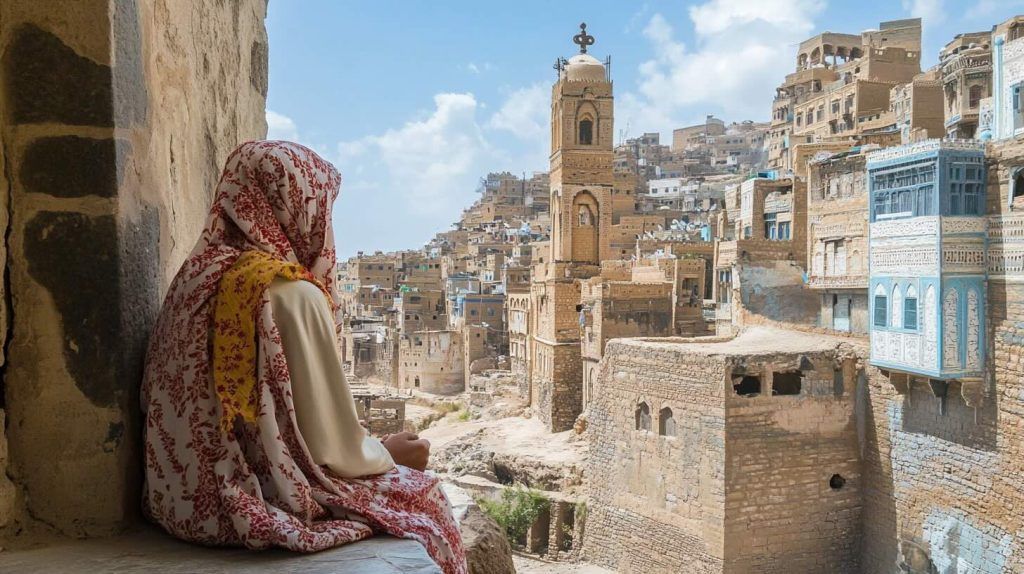- The Ministry of Communications (MoC) controls the national fiber backbone and international gateways and leases bandwidth to private ISPs at wholesale prices around $50 per 1 Mbps.
- As of 2021, Iraq had about 2.1 million fixed-line/FTTH subscribers, with most of the deployment concentrated in Baghdad.
- Iraq has over 40 million mobile subscriptions, with 4G LTE launched in January 2021 across Zain Iraq, Asiacell, and Korek, reaching approximately 98% of the population by 2023.
- By early 2024, about 36.2 million Iraqis were internet users, representing 78–79% of the population.
- The Iraqi National Backbone project, led by Earthlink and Nokia, will span 15 provinces, serve about 3.5 million people, and use a 100G backbone upgradeable to 400G with 99.9% availability.
- Starlink was not officially authorized in 2023, though the government discussed licensing with SpaceX in July 2023, while Jordan licensed Starlink in 2024.
- During the 2019 protests, Iraqi authorities shut down internet and social media for about 263 hours, with an estimated economic cost of $2.3 billion.
- In late 2023 Iraq approved a plan with Vodafone to establish a government-owned 5G network, and by November 2024 Vodafone received a 5G operating license.
- Laws against defamation carry penalties up to 7 years in prison, and authorities have used blanket internet shutdowns during protests and unrest.
- Iraq established its first Internet Exchange Point (IXP) and now hosts several local IXPs and data centers to keep domestic traffic local.
Infrastructure and Major Service Providers
Iraq’s internet infrastructure has expanded significantly since the early 2000s, though much of the core network remains under government ownership. The Ministry of Communications (MoC) controls the national fiber-optic backbone and international gateways, leasing bandwidth to private ISPs trade.gov. Iraq is connected via terrestrial fiber links to all six neighboring countries and to undersea cables like Gulf Bridge International, but overall capacity is still catching up to demand trade.gov. The state fixed-line network is in poor condition, with limited fiber-to-the-home (FTTH) projects (about 2.1 million fixed-line/FTTH subscribers as of 2021) concentrated in Baghdad trade.gov. As a result, most Iraqis access the internet through wireless means – either mobile networks, Wi-Fi at internet cafes, or local neighborhood Wi-Fi providers – since last-mile fixed broadband is not widely available trade.gov. These community-based networks share bandwidth (which is costly, at ~$50 per 1 Mbps wholesale) leading to relatively low speeds per user trade.gov.
Major Service Providers: The market has diversified from the days when Uruklink (the state-run ISP) was the sole provider. Today dozens of ISPs operate, often reselling capacity from the MoC backbone en.wikipedia.org. Earthlink Telecommunications is the largest and fastest-growing ISP, offering nationwide services including fiber and wireless broadband kapita.iq. Other notable private ISPs include ScopeSky, IQ Networks, Newroz Telecom, and regional providers in the Kurdistan Region (such as Tishknet), which often use wireless and VSAT links. Iraq’s three mobile network operators – Zain Iraq, Asiacell, and Korek Telecom – are also key internet providers, delivering 3G/4G mobile data across the country trade.gov. These operators, backed by foreign investment (e.g. Zain Kuwait owning Zain Iraq, Qatar’s Ooredoo owning Asiacell), launched 4G LTE services in 2021 and now cover most populated areas trade.gov. A fourth mobile operator in Baghdad (formerly SanaTel) and various smaller wireless ISPs also serve niche markets. Overall, competition exists in the retail internet market, but the MoC’s monopoly over the backbone keeps wholesale prices high and infrastructure development slow trade.gov.
Government Regulations, Policies, and Censorship
Regulatory Framework: Iraq’s telecom sector is overseen by the Ministry of Communications and the Communications and Media Commission (CMC), which regulate licensing and spectrum. Under Saddam Hussein’s regime, internet access was tightly controlled – as of 2002 only an estimated 25,000 Iraqis were online en.wikipedia.org. After 2003, the sector opened up and usage spread rapidly, with early efforts to establish a regulatory framework aided by international advisors en.wikipedia.org. The constitution nominally guarantees freedom of expression and privacy, but with broad limitations against content that violates “public order and morality” or national security en.wikipedia.org. In practice, authorities have significant leeway to monitor and restrict online activity. There are no laws explicitly mandating widespread internet filtering, and a 2009 assessment found no systematic web blocking in Iraq at that time en.wikipedia.org. The government does not openly restrict access to websites in peacetime, nor publicly admit to surveillance – however, NGOs report that authorities do monitor email, chat rooms, and social media through local ISPs without judicial oversight en.wikipedia.org. All internet service providers are required to be licensed, and SIM card registration for mobile users is enforced to curb misuse.
Censorship and Content Restrictions: Although overt web censorship is not routine, Iraq’s government has resorted to drastic measures during times of unrest or conflict. For example, during the 2014 ISIS insurgency, officials blocked major social media platforms to hinder militants’ communications and propaganda pbs.org. A more common tactic has been region-wide or nationwide internet shutdowns in response to protests or security incidents. In 2019, amid mass anti-government protests, the Iraqi authorities repeatedly shut down the internet and social media for days at a time – totaling ~263 hours of blackout – in an effort to stifle protest organizing middleeastmonitor.com middleeastmonitor.com. These shutdowns had huge economic costs (an estimated $2.3 billion lost in 2019) and drew criticism for restricting citizens’ ability to document events middleeastmonitor.com middleeastmonitor.com. Both the federal government and the Kurdistan Regional Government (KRG) have used such network disruptions as a tool during crises, according to Freedom House and human rights observers state.gov.
Beyond shutdowns, Iraq uses legal means to police online speech. Libel and defamation are criminal offenses under Iraq’s penal code and a 1968 Publications Law, with penalties up to 7 years in prison for “publicly insulting” the government en.wikipedia.org. Vaguely worded provisions against spreading false information or harming public morals have been used to charge journalists and social media users. This creates a climate of self-censorship, as people fear reprisals from authorities, militias, or extremist groups for what they say online en.wikipedia.org en.wikipedia.org. In recent years, the Interior Ministry even launched campaigns to crack down on “indecent” content on social media amnesty.org.
Proposed legislation may further tighten controls. In 2023, the government re-introduced a draft Cybercrime law and a Law on Freedom of Expression that rights groups warn would severely curtail online freedoms newarab.com. These drafts include broad clauses against content that could be interpreted as criticizing officials or “undermining social morals,” imposing heavy fines and jail terms newarab.com newarab.com. After public pushback, parliament delayed the cybercrime bill’s passage, but its future remains a concern hrw.org. Overall, Internet freedom in Iraq is rated “Partly Free” by Freedom House, reflecting an environment with fewer constraints than authoritarian neighbors but still marked by censorship pressure and periodic crackdowns pulse.internetsociety.org.
Accessibility, Penetration Rates, and Digital Divide
Internet usage in Iraq has grown rapidly, but access is uneven across different demographics and regions. As of early 2024, about 36.2 million Iraqis were internet users, representing 78–79% of the population datareportal.com pulse.internetsociety.org. (By comparison, Iraq’s penetration was about 50% in 2020–2021, showing how much it has risen in just a few years trade.gov.) This penetration rate is higher than the overall average for Asia (~74%) pulse.internetsociety.org, and indicates that a majority of Iraqis have been online recently. The spread of affordable smartphones and mobile broadband has been a key driver of this growth.
However, a digital divide persists. Urban residents have significantly greater access than rural ones – an estimated 85% of the urban population uses the internet, vs only ~65% in rural areas pulse.internetsociety.org. Infrastructure in rural provinces lags behind, and many remote communities still lack reliable broadband coverage. There is also a notable gender gap in internet use: about 85% of men in Iraq use the internet, compared to 72% of women, reflecting social and economic factors that limit women’s digital access pulse.internetsociety.org. Lower literacy rates among women, cultural norms in conservative areas, and safety concerns are contributing factors to this gap. Similarly, younger Iraqis (especially in cities) are far more connected than older generations or those in remote areas.
Cost and service quality issues further impact accessibility. Despite improvements, high-speed internet can be expensive relative to incomes, especially for fixed broadband. Many low-income Iraqis access the web primarily through shared connections – for example, using public Wi-Fi hotspots or neighborhood wireless ISPs that split bandwidth among subscribers trade.gov. This can keep costs down but often means slower speeds. According to one estimate, a basic mobile internet package (low data usage over 3G) costs around 2% of average monthly income in Iraq pulse.internetsociety.org, which meets affordability benchmarks. Yet for higher data needs, prices climb steeply due to the MoC’s wholesale rates. The result is that wealthier households can afford home fiber or dedicated links (where available), while poorer and rural communities rely on mobile data or communal networks. The government has launched initiatives like free Wi-Fi zones and e-learning centers to broaden access, but these remain limited in scope. Bridging the digital divide – by extending infrastructure to rural Iraq and improving digital literacy for marginalized groups – is recognized as a development priority.
Impact of Political Instability on Connectivity
Decades of conflict and political instability in Iraq have directly affected internet connectivity – both through deliberate government actions and as collateral damage. Internet shutdowns are one manifestation. During waves of unrest (such as the 2019 October Protests), authorities imposed near-total blackouts and social media bans to impede protesters’ communications middleeastmonitor.com middleeastmonitor.com. While intended to restore order, these shutdowns disrupted not only activism but also businesses, banks, and daily life, effectively cutting Iraq off from the digital world for hours or days. In the last few years, dozens of shutdowns have been recorded (46 instances in a 12-month period, per one report) as the government also intermittently cuts internet during school exam periods to prevent cheating pulse.internetsociety.org. Such practices underscore how political/security decisions can take precedence over connectivity. International and domestic observers have criticized these outages as violations of freedom of expression and harmful to the economy middleeastmonitor.com middleeastmonitor.com.
Armed conflict and terrorism have also physically damaged Iraq’s communications infrastructure. The Iraq War (2003)and later fights against ISIS saw telephone exchanges, cell towers, and fiber cables destroyed, requiring extensive repairs en.wikipedia.org en.wikipedia.org. Even in more stable times, militia violence and sabotage pose risks: in 2022, for example, vandals destroyed sections of Earthlink’s fiber network in Baghdad, cutting off internet service to over 40,000 users en.964media.com. The company attributed the attack to armed groups and noted it was not the first such incident en.964media.com. In areas that were ISIS strongholds (northwestern Iraq), rebuilding internet lines has been slower, contributing to regional disparities in access.
Cyber threats have emerged alongside physical threats. Government websites and online systems have been targets of hacking by both insurgent groups and foreign actors. During the ISIS conflict, extremist propaganda and recruitment proliferated on Iraqi social media, prompting cyber countermeasures by authorities. More recently, state-sponsored hackers have infiltrated Iraqi networks – for instance, in 2024 security researchers revealed an Iranian APT group (“OilRig”) ran a sophisticated malware campaign against Iraq’s government ministries thehackernews.com. Such intrusions aim to steal sensitive data or disrupt critical services. The Iraqi government is increasingly aware of cybersecurity vulnerabilities; it scored only 20.7/100 on the ITU’s Global Cybersecurity Index in 2023, indicating much room for improvement pulse.internetsociety.org. Steps are being taken to bolster cyber defenses (e.g. the creation of a National Cyber Security Center), as well as to coordinate with international partners to counter threats. Nonetheless, the fragile security environment means internet access in Iraq can be unstable, with users facing not just slow speeds but the possibility of sudden shutdowns or attacks on the network during crises.
Mobile Networks, Broadband Expansion, and Digital Services
Mobile networks play a central role in Iraq’s internet ecosystem, given the limited reach of fixed lines. Iraq has over 40 million mobile subscriptions, exceeding its population (many people have multiple SIMs) datareportal.com datareportal.com. After years of reliance on 2G/3G, the introduction of 4G LTE in January 2021 was a major milestone trade.gov. All three main carriers – Zain, Asiacell, and Korek – rolled out 4G service, initially covering major cities and later expanding to smaller towns trade.gov. By 2023, about 98% of Iraq’s population was within 4G coverage (at least one operator’s signal) pulse.internetsociety.org. This upgrade dramatically improved mobile data speeds: median mobile download speed jumped to ~37 Mbps in 2022 (a 726% increase over the previous year as 4G replaced 3G) datareportal.com. In rural or remote areas, older 2G/3G networks are still in use where 4G rollout is incomplete trade.gov, but coverage is steadily improving as operators build new towers.
Mobile internet is the primary means of access for many Iraqis, and it underpins popular digital services. Social media usage is very high via smartphones, and e-commerce, online banking, and e-government services are increasingly designed mobile-first. The three mobile operators have invested in network expansion despite challenges (they have also been required to list shares on the Iraqi stock exchange, per license terms, to increase transparency) trade.gov. Looking ahead, Iraq is planning for 5G: in late 2023 the government approved a plan to partner with Vodafone to establish a government-owned 5G network iraq-businessnews.com agbi.com. Vodafone is acting as an advisor/operator for this initiative, which aims to launch 5G and join the ~52 countries already with 5G services agbi.com. As of November 2024, a license for Vodafone to operate 5G was granted, and network design was underway agbi.com agbi.com. If implemented, 5G could greatly boost wireless capacity and enable new applications (though some observers have raised concerns about transparency and the role of a state-run 5G network newarab.com).
On the fixed broadband side, Iraq is gradually expanding fiber-optic infrastructure to deliver higher speeds. The MoC and its two state-owned telecom companies have begun rebuilding and extending the national fiber backbone with help from private contractors trade.gov. One flagship project is the Iraqi National Backbone, led by Earthlink in partnership with Nokia, to create a high-speed IP metro network across 15 provinces. This involves installing new fiber nodes and high-capacity routers to eventually provide affordable broadband to 3.5 million people and support services like FTTx (fiber-to-the-home), IoT, and IPTV nokia.com. The backbone upgrade, using 100G equipment (upgradable to 400G), is expected to vastly improve network reliability and throughput, with 99.9% availability targets nokia.com nokia.com. In urban areas, especially Baghdad and the Kurdistan region, some neighborhoods now have FTTH or cable internet options offering much faster speeds (50–100 Mbps) for those who can afford them. Private ISPs like Earthlink have also built data centers and content caches in Iraq to improve service quality and localize more internet traffic (about 44% of popular web content is reachable from local caches pulse.internetsociety.org, reducing dependence on international links).
The expansion of connectivity has enabled a range of digital services to emerge. The Iraqi government has been rolling out e-government portals for services like applying for IDs or licenses online trade.gov. Sectors such as education and healthcare are adopting digital platforms – for example, telehealth pilots and e-learning systems (accelerated by needs during the COVID-19 pandemic). E-banking and mobile payment services are also growing as more of the population comes online trade.gov. Iraq’s tech startup scene, while nascent, is leveraging the increasing internet penetration – startups in e-commerce, e-learning, and fintech (such as online learning platform IoT Kids, which attracted investment from Earthlink) have started to gain traction kapita.iq kapita.iq. Still, challenges like inconsistent connectivity and low trust in online transactions temper the pace of digital transformation. To support digital services, Iraq established its first Internet Exchange Point (IXP) and now has a few local IXPs and data centers to keep domestic traffic local pulse.internetsociety.org. Overall, the continued expansion of both mobile and fixed broadband is gradually building the foundation for Iraq’s participation in the digital economy, aiming to diversify beyond oil and improve public services through ICT.
Satellite Internet: Availability and Future Potential
Satellite internet has long been an important component of Iraq’s connectivity, especially in areas lacking terrestrial infrastructure. In the early post-2003 period, many organizations and ISPs relied on VSAT (satellite) links because fiber networks were still being rebuilt. Uruklink and other providers partnered with Middle Eastern and European satellite hubs to deliver broadband via satellite across Iraq en.wikipedia.org. Even today, satellite services are used by businesses in remote oil fields, rural communities, and the military. The primary telecom provider for the Iraqi military has been a satellite-based service (the company TS2 Space was noted as a key provider) en.wikipedia.org. Dozens of small VSAT operators offer internet to hard-to-reach locations, with C-band or Ku-band dishes dotting parts of the countryside. However, traditional satellite internet tends to be expensive and has higher latency, so it’s generally a niche solution where wired or cellular options are unavailable.
The Iraqi government regulates satellite communications tightly for security reasons. Operating a satellite ground terminal requires a license, and historically authorities have been cautious about private individuals using satellite phones or internet (especially during conflict periods, when unmonitored satellite links raised surveillance concerns). In recent years, the prospect of new Low Earth Orbit (LEO) satellite broadband has drawn interest. Starlink (SpaceX’s satellite internet service) is technically capable of covering Iraq, but as of 2023 it was not officially authorized. In July 2023, Iraq’s MoC held discussions with SpaceX about licensing Starlink, addressing technical and security issues, though no decision was made yet eicon-me.com. Similar talks have reportedly occurred with OneWeb and Amazon’s Project Kuiper about entering the Iraqi market eicon-me.com. Neighboring Jordan recently granted Starlink a license (with service expected in 2024) eicon-me.com, and Gulf states like Bahrain have done the same, but Iraq’s approval is pending. The Communications and Media Commission has been studying the economic feasibility and regulatory framework for LEO satellite internet ina.iq.
In the meantime, some Iraqis have managed to use Starlink informally via roaming kits, but this remains unofficial and the service can be blocked if detected reddit.com. There are also regional satellite internet providers (such as YahClick from the UAE, or satellite broadband via Arabsat and others) that serve Iraq under agreements. For example, Hughes Network Systems and local partner EarthLink had a Ka-band satellite internet offering for Iraq, and companies like NuRAN Wireless were involved in satellite-fed 3G cell sites in rural villages. The future potential for satellite internet in Iraq is significant: if LEO constellations (Starlink, OneWeb, etc.) are permitted, they could rapidly provide high-speed coverage to rural and underserved areas without waiting for fiber or towers. This could help connect isolated communities in western Anbar desert or mountainous regions of the north. It may also provide a backup in urban centers during fiber cuts or outages. The government is likely to impose some controls (such as requiring local ground stations or traffic monitoring) when licensing these services, to balance improved access with security. Nonetheless, satellite internet is poised to complement Iraq’s terrestrial networks, ensuring more ubiquitous connectivity. Within a few years, Iraq could see a mix of options – from fiber in cities, 5G and 4G nationwide, and satellites reaching the gaps – creating a more resilient internet landscape.
Comparison with Regional and Global Standards
- Internet Penetration: Iraq’s internet usage (approximately 79% of the population) is relatively high compared to many countries in the region pulse.internetsociety.org. It exceeds the overall Asia regional average of 74% pulse.internetsociety.organd is on par with the global average (around 66% of the world’s population is online as of 2023). This penetration rate is higher than some of Iraq’s neighbors that have faced conflict (e.g. Syria, Yemen), and even ahead of countries like Egypt. However, it still trails the near-universal internet access in Gulf states such as the UAE or Qatar (which boast well over 90-95% penetration). There remains room for growth to reach full saturation, especially by connecting the remaining offline rural and low-income populations.
- Connection Speeds: In terms of speed and quality, Iraq lags behind global benchmarks. As of 2022, the median mobile download speed in Iraq was about 37 Mbps, and median fixed broadband speed about 19–33 Mbps(rising to ~33 Mbps in 2023) datareportal.com worldpopulationreview.com. These speeds are a fraction of those in the region’s leading countries – for example, mobile users in the UAEenjoy 300–400 Mbps median downloads, among the fastest in the world worldpopulationreview.com, and neighboring Saudi Arabia averages 100+ Mbps on both mobile and fixed connections worldpopulationreview.com. Iraq’s speeds also fall below the global average (in 2021 the global mean was ~113 Mbps for fixed and 63 Mbps for mobile) worldpopulationreview.com. The relatively slow speeds in Iraq reflect the still-developing infrastructure: many users share low-bandwidth connections, and fiber-to-home is not widespread. That said, Iraq’s speeds are improving – the rollout of 4G pushed mobile performance into the middle tier globally, and ongoing fiber investments are steadily raising fixed broadband speeds. Regionally, Iraq is now ahead of war-torn Syria (which has single-digit Mbps internet) and roughly on par with countries like Lebanon or Iran in mobile speed worldpopulationreview.com, but it is behind the more advanced Arab states. Continued upgrades (and eventually 5G) should help narrow this gap.
- Internet Freedom and Censorship: Iraq stands somewhere in the middle on internet freedom when compared to regional and global standards. Freedom House rates Iraq’s internet as “Partly Free” pulse.internetsociety.org. This is notably better than countries like Iran or China, where the internet is “Not Free” with extensive state censorship, but it is not as open as the internet in many Western democracies (“Free”). Within the Middle East, Iraq’s online environment allows more expression than in Gulf monarchies such as Saudi Arabia or the UAE (which heavily censor content and surveil users), but there are still significant restrictions especially during times of turmoil. For instance, unlike stable democracies where internet shutdowns are extremely rare, Iraq has repeatedly imposed shutdowns and social media blocks (comparable to measures seen in Sudan or Egypt during unrest) middleeastmonitor.com middleeastmonitor.com. Iraqi netizens enjoy access to popular global platforms (Facebook, WhatsApp, YouTube, etc.) under normal circumstances without the blanket filtering seen in China or Iran, but they must navigate vague laws and the possibility of prosecution for speech that angers powerful figures en.wikipedia.org. In summary, Iraq’s internet freedom is middling – it neither meets the high standard of open, uncensored access nor descends to the extreme controls found in the most repressive states. Future legal reforms (such as rejecting or amending the draft cybercrime law) and adherence to human rights norms will determine if Iraq moves toward a freer internet or backslides under government and factional pressures.
- Accessibility and Inclusivity: Globally, one key benchmark is affordable access for all segments of society. Iraq has made strides in spreading connectivity, but digital inclusivity issues remain. The rural-urban divide (20 percentage point gap in usage) pulse.internetsociety.organd gender divide (13 point gap) pulse.internetsociety.orgare more pronounced than in many developed countries, indicating Iraq has work to do to achieve equitable access. By contrast, some regional peers have nearly closed the gender gap in internet usage (for instance, in Jordan and Iran the majority of both men and women use the internet, though Iran’s censorship is heavy). In terms of affordability, Iraq does better than some developing nations – entry-level mobile internet is relatively affordable (meeting the UN’s <5% of income target) pulse.internetsociety.org. Yet for higher-speed services, costs in Iraq are higher than in competitive markets like Europe or Turkey, partly due to the state monopoly on bandwidth trade.gov. The digital literacy level in Iraq is improving with a young population (median age ~21) datareportal.com, but education and training need to spread to older and disadvantaged groups to fully utilize the internet. Compared to global standards, Iraq is behind on metrics like IPv6 adoption (0% vs ~21% average in Asia) pulse.internetsociety.organd local content hosting, meaning much of its internet traffic still routes through outside servers. On the other hand, the presence of at least one Internet Exchange Point and a few data centers is a positive sign aligning with global best practices for internet infrastructure pulse.internetsociety.org pulse.internetsociety.org.
In conclusion, Iraq’s internet access landscape reflects the country’s broader situation: it is rapidly catching up with the world in terms of usage and basic infrastructure, yet still hindered by instability and state control in certain aspects. When measured against regional and global standards, Iraq shows a mixed picture – solid user penetration and growing networks, but lagging in speed and consistency; fewer legal barriers than the worst censors, but not a full free internet; and ongoing challenges to make access truly universal and reliable. The coming years will be crucial as Iraq invests in modernization (fiber, 5G, satellites) and navigates governance issues, determining whether its internet will fully join the ranks of fast, open, and ubiquitous networks worldwide.
